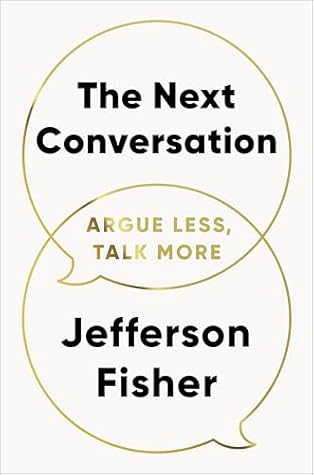More on this book
Community
Kindle Notes & Highlights
Read between
March 26 - April 2, 2025
Commit yourself to that one rule. Then, and only then, when you can go a week without a single unnecessary apology, should you move on to another lesson that also resonates with you.
For one, you can win an argument and still be wrong.
Winning an argument is a losing game. Winning means that you’ve likely lost something far more valuable—their trust, their respect, or worse, the connection.
The fastest way to lose your peace of mind is to give someone a piece of yours.
Loss is the fear of losing someone or something you value, whether it’s a person, a job, or a certain status. In communication, you often encounter loss as the fear of losing a relationship or status.
The psychological threat of loss can make you defensive or overcautious in your communication. Perhaps it causes you to overexplain, hesitate to voice your opinions, or avoid difficult conversations altogether. You may often feel this way because the anticipated pain of the loss is stronger than the temporary discomfort of immediate confrontation.
Is this person worth my peace of mind? Is what I want to say something that needs to be said? Does it need to be said now? And am I the one to say it? Will my words help or hurt the conversation?
Am I speaking to provide value, or just speaking to hear myself? Will my words make progress toward my goals and values? Is there more I need to understand before I respond?
Let it be a reminder that true confidence chooses the moment of input.
This is also why overexplaining kills confidence. The more words you use, the less you actually say. Using too many words to say something small creates a big problem. The temptation to overexplain stems from the fear that the other person isn’t going to believe you (a social evaluation trigger). But the more words you use, the less believable you sound. The more words it takes to tell the truth, the more it sounds like a lie. The longer you talk, the more it sounds like you don’t know what you’re talking about.
This is your wake-up call. It’s time you take ownership of your words and realize that not everything that is said requires a response from you. Maybe you forgot, but you get to decide if what somebody says means anything to you. You get to decide whether you take what they did personally. You get to decide the weight or value that you put on their words. And too often what somebody says isn’t worth the paper if you wrote it down, yet you hold it and collect it. And before you know it, you’re carrying a bag of books.
Stop carrying the weight of other people’s words. Stop attending every argument you’re invited to. If sports are your jam, just because they throw a pitch doesn’t mean you have to swing. Let it go by. Just because they hit it to your side of the court doesn’t mean you have to send it back over the net. Let it fall to the ground. There is no requirement, no compulsion, that just because they said something, you are obligated to say anything at all. “I just have to say…” No, you don’t. There’s nothing you have to say. There are only things you want to say. But who are you
saying it for? Are you saying it to make a point? Or are you just saying it to be heard? Accountability of defensiveness means recognizing your impulse to point outward and choosing instead to point inward. I use the word choose beca...
This highlight has been truncated due to consecutive passage length restrictions.
When you learn not to attend every argument you’re invited to, you can prevent the wall from coming between you and the other person and preserve connection.


